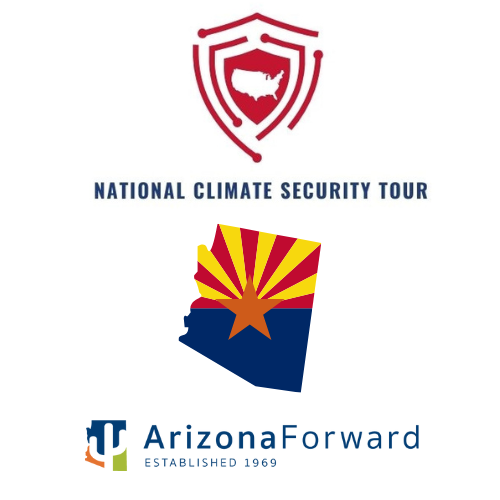
Event Recap: Climate and National Security in the Copper State
On September 14th, ASP, in partnership with Arizona Forward, convened a panel of subject matter experts to discuss climate security and national security in Arizona. The wide ranging discussion explored Phoenix and greater Arizona’s climate efforts, including water management, extreme heat mitigation and adaptation, renewable energy integration, and sustainability. The discussion also connected the dots between the climate action at the local and state level and how it impacts the U.S. military and national security.
Mark Hartman, Chief Sustainability Officer for the City of Phoenix provided a local perspective for the conversation, which included how the city is approaching its applications for federal funds from the Infrastructure Investment and Jobs Act (IIJA) and the Inflation Reduction Act (IRA). His unique background and depth of sustainability expertise yielded important data points for consideration as state and local officials plan for the implementation of climate programs and projects.
Ms. Autumn T. Johnson, Executive Director of the Arizona Solar Energy Industries Association, complemented Mr. Hartman’s remarks with a private sector perspective on the myriad benefits as well as the challenges facing climate action. From how cities are built to updating energy infrastructure, panelists agreed that there is shortage opportunities for cities to succeed-or fail. Panelists acknowledged some of the ongoing hurdles, including renewable integration into the grid, speed at which infrastructure can be built and deployed, and the legislature’s role in how implementation of climate policies ultimately play out.
Lt. Gen Norm Seip, President of ASP, also provided important national security and military context, which included insights from his time at nearby Davis-Monthan Air Force Base, its solar array, and how the military is approaching climate action and resilience.
In all, although IIJA and IRA are still in the early stages of implementation and trade-offs will be necessary, panelists agreed that the investments, incentives, and funding available for continued climate action will have compounding benefits that will have positive outcomes for years to come.






